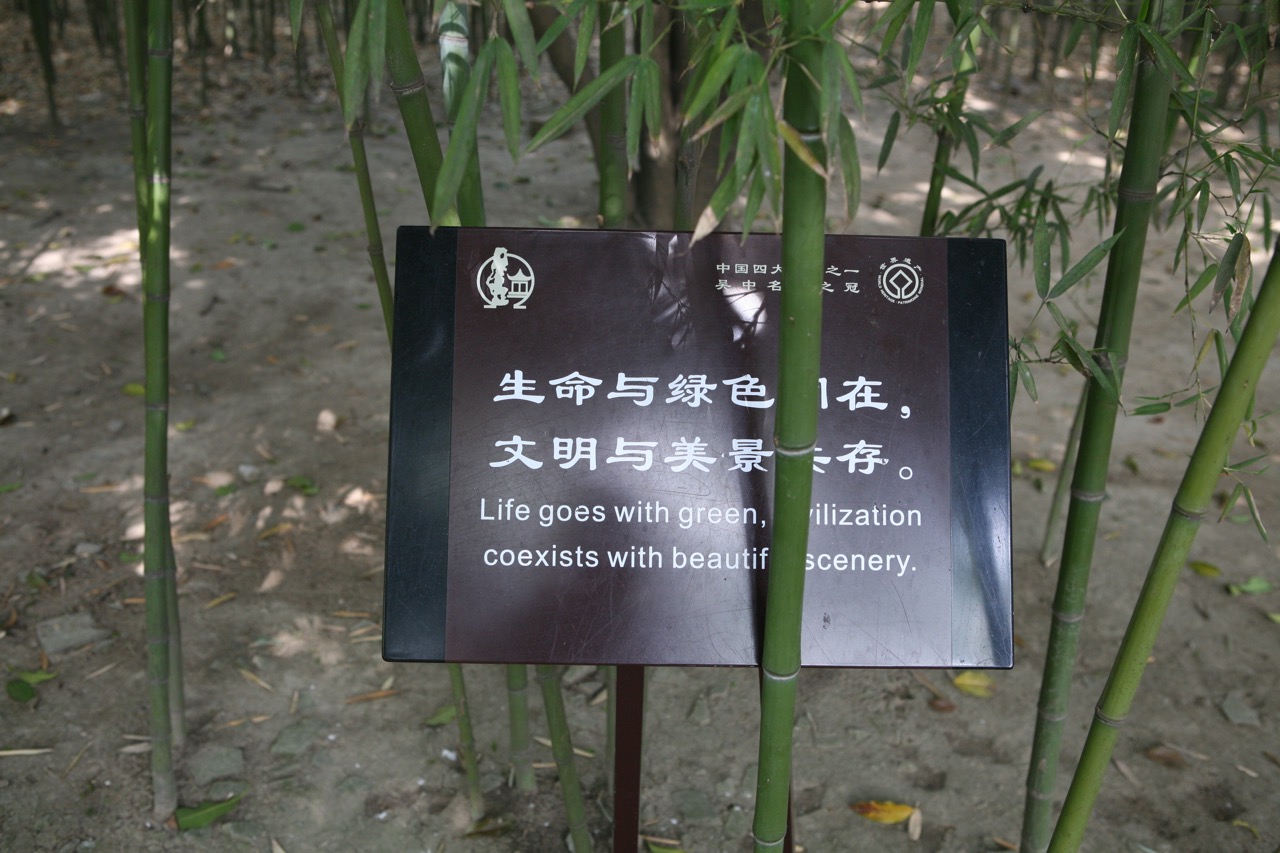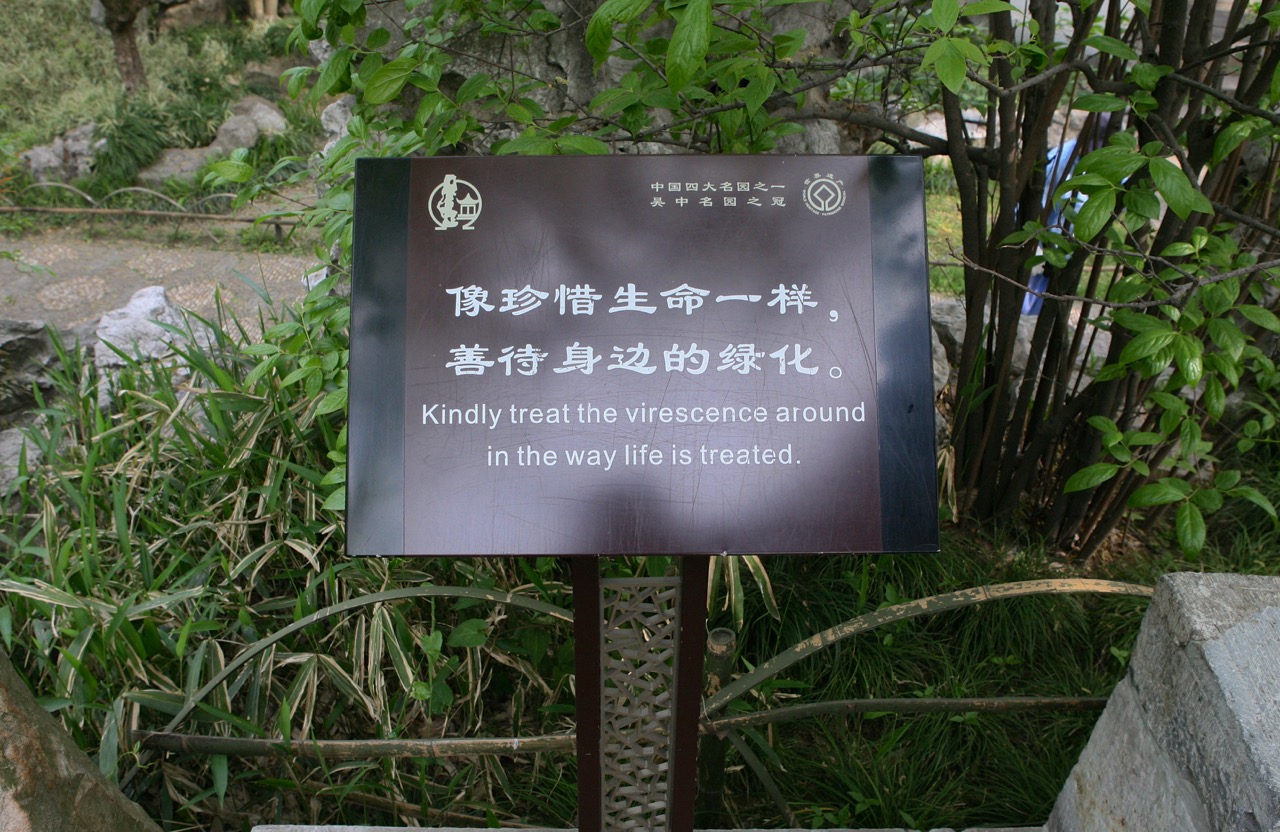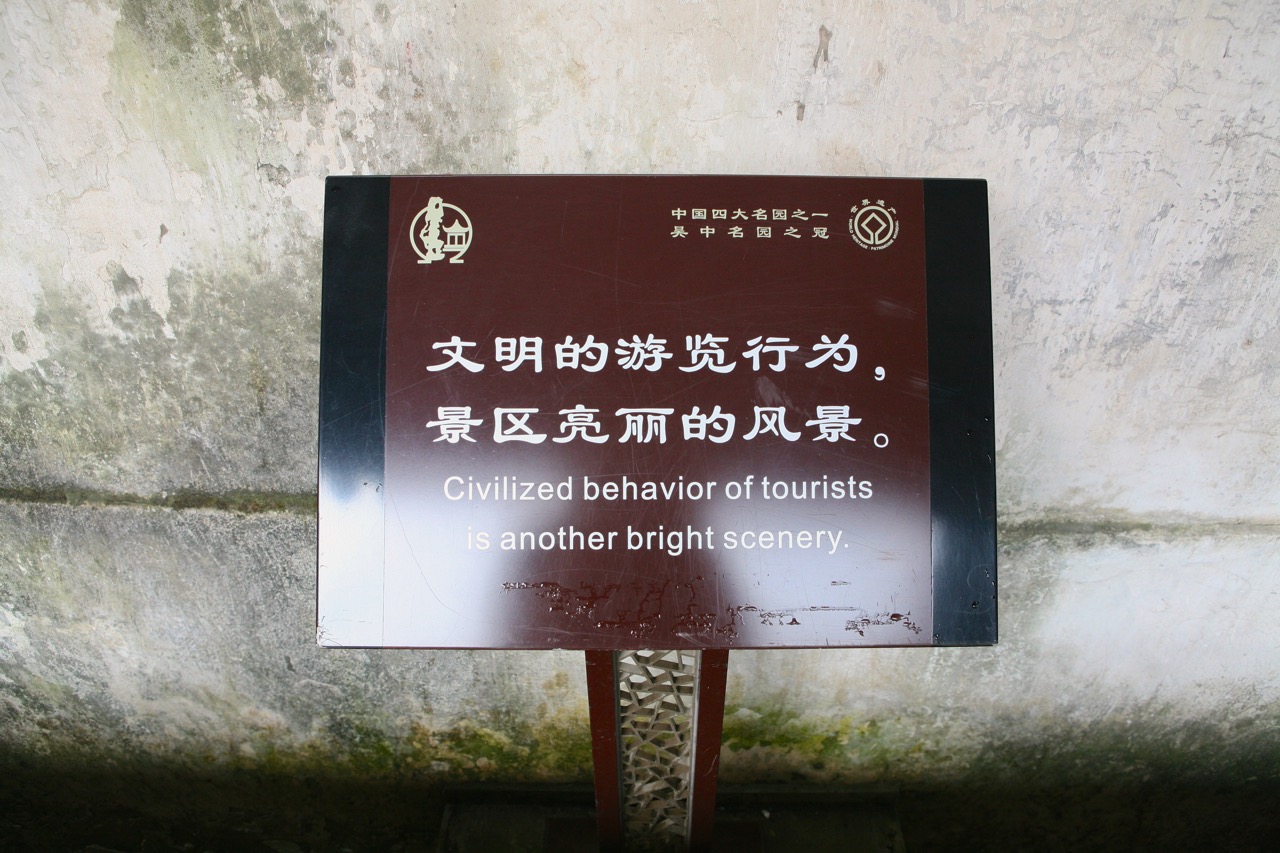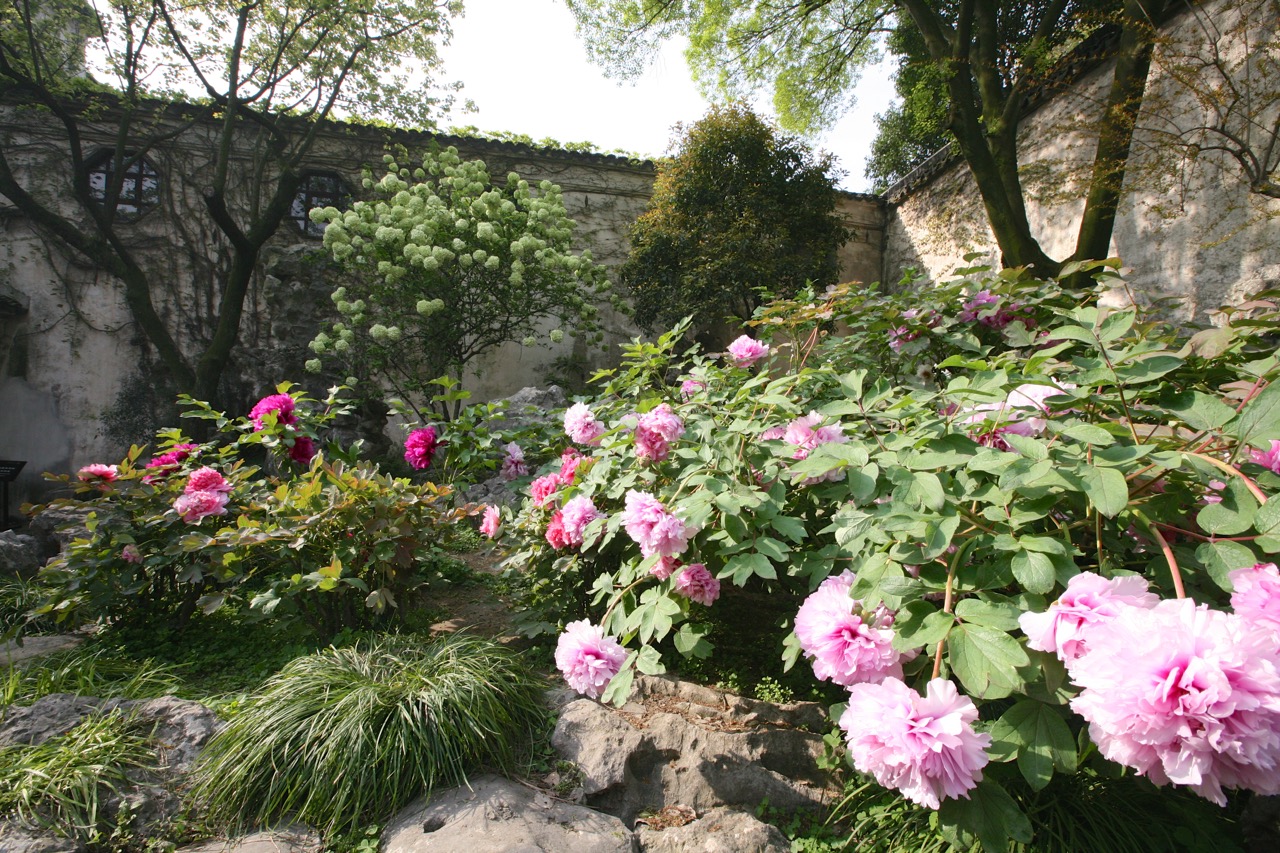I love Chinese garden signs! Actually, I love their wonderful English sub-titles.
Visiting gardens in Suzhou, China is still an immersive experience. Signage, maps, and conversation is, of course, all in Chinese. It is a reminder of how much we absorb from the text and voices around us.
Without these clues, we miss important insights. Traveling alone and not speaking the local language can feel disorienting and isolating - you only get part of the picture. So when I encountered the occasional garden sign that featured English, it felt welcoming and reconnected me with what was going on.
Suzhou, China is an ancient city that dates back to 500 BCE. Pan Gate was built to protect the city by controlling both land and water access. Its current structure dates from the 1300’s. It is now preserved as a scenic area planted with cherry trees and peonies.
Best of all, Chinese translations are poetic, thought provoking, and fun. Their practical purpose is to remind us to do the right thing, like: 'stay on the path'. But even better, they often offer an incentive to do so, offering us a reward for behaving well like: 'staying on the path makes you a beautiful person.' Some commend visitors for their good behavior and others sound like fortune cookies:
“Only in the sun of civilization can trees maintain evergreen”;
“Civilized behavior of tourists is another bright scenery”;
“Life goes with green, civilization coexists with beautiful scenery”;
“Kindly treat the virescence around in the way life is treated”;
“the small grass is ashamed to smile, please don’t bother it”;
“the grass is smiling at you, please detour.”
Each one left me with a wide smile on my face.
Translating things is never easy, but there are a few particular challenges when it comes to Chinese-to-English translations: different grammatical rules, limited software, and a lack of good translators.
Street scene in Suzhou, China outside of a scholar garden.
According to Taiwanese-American China Mike, “Chinese—like English—is highly idiomatic… Many popular [idioms] have a universally understood moral – a kind of cultural shorthand that virtually every Chinese person understands… Chinese also lends itself to ‘poetic’ – almost haiku-like translations. ..’Stay off the grass,’… might read, ‘The grass is smiling at you, please be kind.’”
I believe that more gardens around the world should have signs like these. First, we should translate our garden signs into multiple languages to be as welcoming as possible; second, we should make our signs thoughtful and fun.
See more (serious) Chinese garden stories here.









